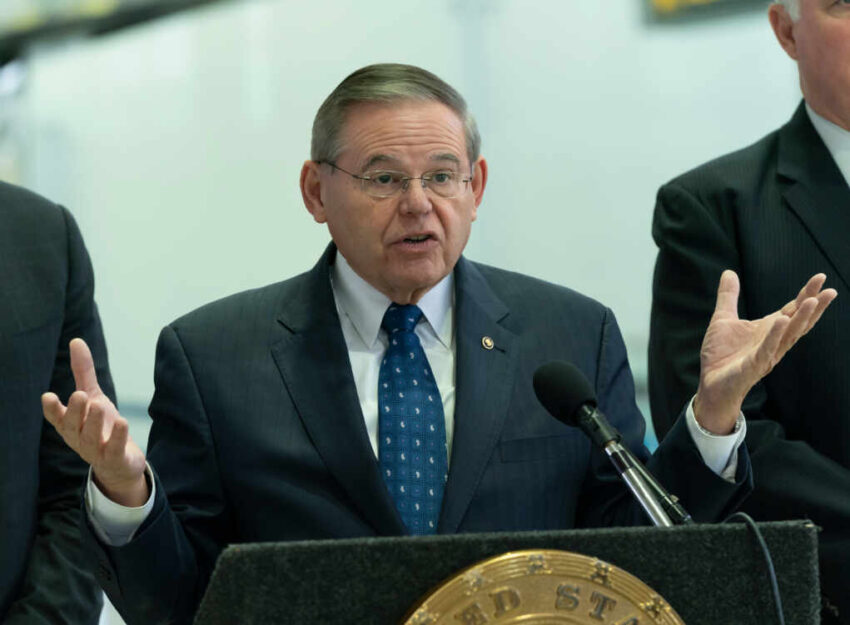A sitting U.S. senator secretly advised a foreign regime on evading American scrutiny over a journalist’s murder—and got paid in gold and cash for doing it.
Story Snapshot
- Bob Menendez became the first U.S. senator convicted of acting as a foreign agent, sentenced to 11 years for bribery and obstruction.
- Evidence revealed Menendez helped Egyptian officials dodge U.S. Senate scrutiny after the murder of journalist Jamal Khashoggi.
- The case exposed deep vulnerabilities in congressional oversight and the risk of foreign influence within America’s own halls of power.
- Menendez’s conviction has triggered calls for tougher legislative ethics and renewed focus on defending U.S. sovereignty and values.
Historic Conviction: Senator Convicted as a Foreign Agent
Former Senator Bob Menendez’s conviction and sentencing to 11 years in prison for bribery, obstruction of justice, and acting as a foreign agent mark a watershed moment in American political history. Court records and Congressional Research Service data indicate this is the first time a sitting U.S. senator has been convicted of acting as an unregistered foreign agent, with prosecutors stating Menendez advised Egyptian officials on evading U.S. oversight. Menendez’s actions included accepting bribes in the form of gold bars, cash, and luxury items while leveraging his powerful Senate Foreign Relations Committee chairmanship for personal gain and to advance Egyptian interests.
Bribery, Foreign Influence, and National Security Risks
The Department of Justice’s investigation uncovered that Menendez not only accepted extravagant bribes but also provided Egyptian officials with guidance on deflecting U.S. Senate scrutiny regarding Egypt’s alleged involvement in the 2018 murder of Saudi journalist Jamal Khashoggi. Prosecutors argued in court filings that Menendez’s conduct compromised public trust and posed risks to U.S. national security by prioritizing a foreign government’s interests over those of the United States. Menendez’s co-conspirators, including businessmen Wael Hana and Fred Daibes, received lengthy prison sentences for their roles as intermediaries between the senator and Egyptian officials.
Former federal prosecutor Barbara McQuade told NBC News that the conviction sends a clear signal about the consequences of foreign interference and legislative corruption, while also revealing weaknesses in congressional oversight systems. The fact that a senator could operate so brazenly for years—despite a prior ethics admonishment and a mistrial in an earlier corruption case—raises concerns about the effectiveness of current safeguards against foreign influence and self-dealing in Washington.
Impact on U.S. Foreign Policy and Public Trust
The fallout from Menendez’s conviction is being felt across multiple levels of government and society. New Jersey’s Senate seat was abruptly vacated, disrupting representation for millions of constituents. The case has intensified scrutiny of U.S.-Egypt relations, particularly surrounding military aid and human rights. A Gallup poll conducted in August 2025 found congressional approval ratings fell to 14%, with political analysts such as Larry Sabato attributing the drop partly to high-profile corruption cases like Menendez’s.
Book: Menendez Covered for Egypt After Khashoggi Murder https://t.co/GERO84ms4J
— ConservativeLibrarian (@ConserLibrarian) August 14, 2025
Calls for reform are mounting. Legal experts such as Kathleen Clark of Washington University School of Law and watchdog groups including Citizens for Responsibility and Ethics in Washington (CREW) have called for closing loopholes in Senate oversight to prevent similar cases of foreign influence. There is renewed urgency for stricter transparency requirements, tougher enforcement of foreign agent registration laws, and greater accountability for lawmakers who abuse their positions. The robust evidence and multi-source documentation in this case provide a model for future prosecutions, but also a warning about the persistent risks that foreign actors pose to American democracy.
Expert Perspectives: Calls for Reform and Vigilance
Legal and academic experts agree that Menendez’s conviction sets an important precedent and could serve as a deterrent against future legislative corruption. Former prosecutors emphasize that the severity of the sentences demonstrates the gravity of such offenses. Ethics scholars such as Richard Painter of the University of Minnesota Law School argue that the Menendez case reveals significant flaws in congressional self-policing and underscores the need for stronger safeguards against foreign influence. While some caution against overgeneralizing from one high-profile case, the consensus is clear: defending American sovereignty and the Constitution requires constant vigilance and a willingness to confront uncomfortable truths—even at the highest levels of government.
Sources:
US Ex-Senator Convicted of Bribery, Acting as Foreign Agent
Bob Menendez Sentencing: Corruption Case
Former New Jersey Democratic Senator Bob Menendez Begins 11-Year Prison Sentence
Bob Menendez – Wikipedia
Former US Senator Robert Menendez Sentenced to 11 Years Prison
Click this link for the original source of this article.
Author: Editor
This content is courtesy of, and owned and copyrighted by, https://republicanpost.net and its author. This content is made available by use of the public RSS feed offered by the host site and is used for educational purposes only. If you are the author or represent the host site and would like this content removed now and in the future, please contact USSANews.com using the email address in the Contact page found in the website menu.








